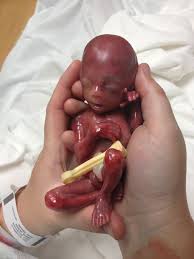Professor Hui Ye
from Loyola University’s Biology Department gave in our Neuro 300 class about
the growing field of stem cells and their uses in neuronal cell regeneration.
Neurons do no regenerate on their own because once differentiated, they remain
in the working phase of the cell cycle unlike other cells which are constantly
dying and replicating. After a severe injury, like a car crash, one might find
themselves in a vegetative state because of the loss of neurons. Dr. Ye’s work
focuses on the mechanisms of actually moving the precursor stem cells to the
correct locations in cultured neuronal precursor stem cells from c157b/6 mice.
Obviously, it
would only be worthwhile to study the mechanisms of migration in these cells if
they were viable for in vivo applications. Currently his work is only in the in
vitro stages, however, there has been promise shown in the field in their
viability. As a student working in his
lab, I can truly appreciate what he is setting out to do. He is literally
figuring out a way to make something move somewhere it does not want to go. Try
making a cat go somewhere without a laser pointer. But then after you get the cat where you
wanted it to, you have to see if it stays there and doesn’t run away
immediately.
The neuronal progenitor
cells theoretically would insert themselves in areas of damage, differentiate
into the desired cells, and then perform their functions as if they had never
been damaged in the first place. But like all research, stem cells are under a
great deal of controversy. Kristen
Phillipkoski, a science editor from Neural Stem Inc., says, “Neuralstem uses
neural rather than embryonic stem cells, and has already seen remarkable
success treating ALS (AKA Lou Gehrig's disease) patients, which I wrote about
here. Neural stem cells are not completely free of controversy: they are taken
from a voluntarily aborted fetus. But embryos are not destroyed in order to
obtain them. And Neuralstem's technology allows them to proliferate all the
cells they need from a single fetus.” This hits the heart of the “pro-life” vs.
“pro-choice” debate.
In my opinion I am pro-choice because there are
circumstances that may necessitate an abortion (this is a whole other argument
on its own!) And if there will already be aborted fetuses, we may as well use
them for science to help improve the lives of others. In a sense, our work is
helping put use to the lives lost due to abortion.
Sources: http://www.neuralstem.com/neuralstem-in-the-news/98-could-this-be-the-end-of-embryonic-stem-cell-research


Online Assignment Help UK
ReplyDeleteAssignment Help UK
Economics Assignment Help
Assignment Writing Services
Assignment Writing Services UK
Data Mining Assignment Help
UK Assignment Help
Assignment Writing Help UK
Treat Assignment Help
English Assignment Writing Help